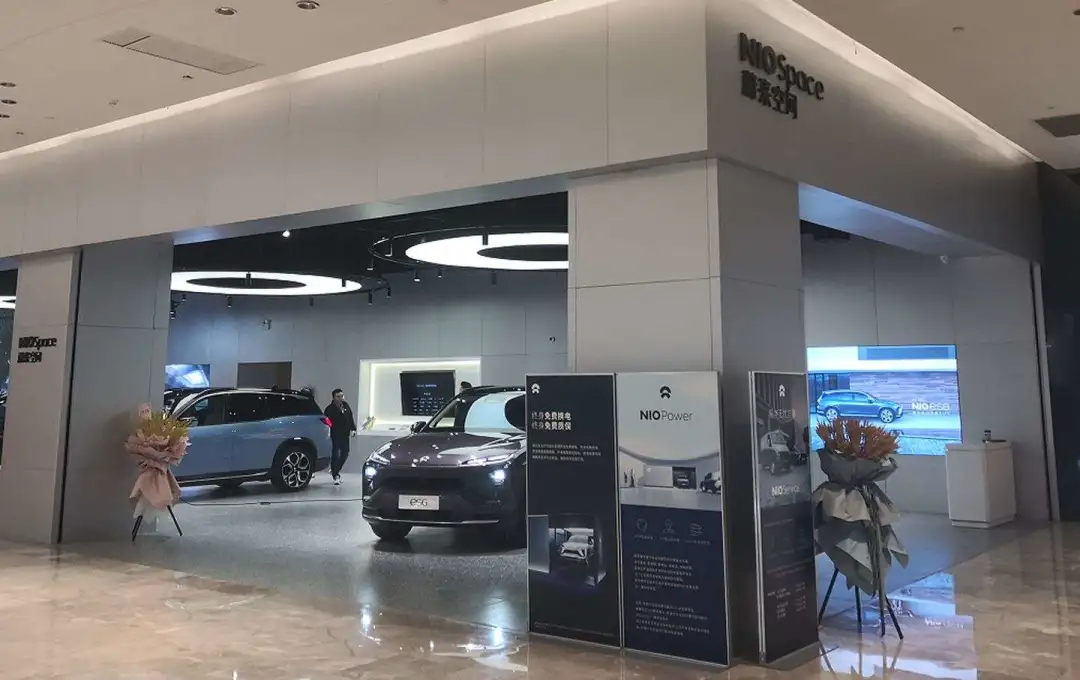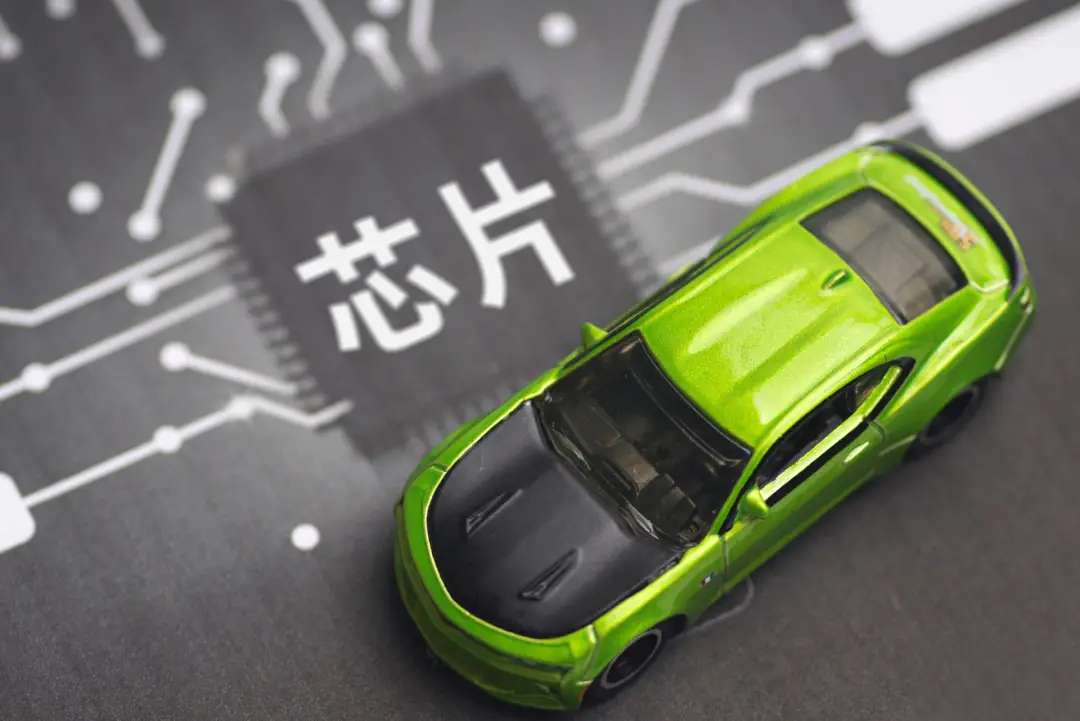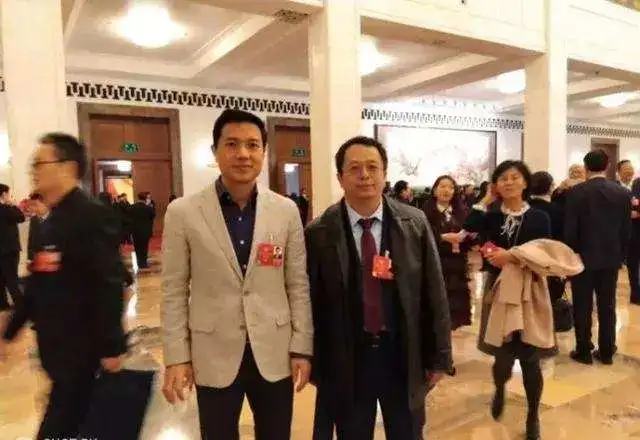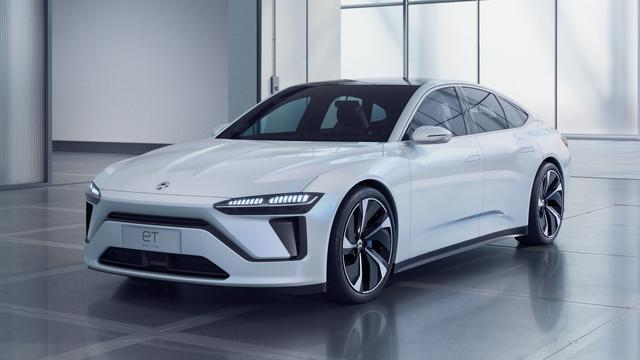Driving Hundred People’s Media: Focusing on the Evolution of the Automotive Industry Chain
Author: Roomy
The turmoil caused by Didi continues.
As the “big brother” was removed from the shelves, other ride-hailing platforms, who had been watching from the sidelines, rose up and became agitated. With various subsidies and new user promotions, they’re all competing fiercely like they’re back in the era of ride-hailing subsidy wars- it’s either you die or I die.
“Can’t have you without me, can’t have me without you?”
Oh, isn’t this the play between 360 and Baidu? Two old rivals who have been at each other’s throats for 20 years, the most intense competition between them was designing their programs to say “choose me or choose him”, so once you installed one, it would remind you to delete the other.
But recently, did Zhou Hongyi and Robin Li get tired of fighting with each other and start a new feud in the automobile industry?
The personality of Internet people is always down for a good argument, no matter the field. Lucky for us, we already have our little bench set up.
Are 4S stores Necessary?
“Honda and Mercedes-Benz trying to cancel 4S store model”…
This news from “People and Islands” is like a stone entering the lake, raising ripples and bringing pressure on dealerships. This is the nth time the concept of “4S store model will be replaced” has been mentioned since its inception in automotive retail.
Although the attempt to cancel the dealership model happened in Australia, the three sentences in the announcement also served as a wake-up call to the more than 30,000 dealerships in China.
“Current authorized car dealers will no longer sell new cars, and vehicles can only be purchased through the official website with unified retail prices.”
In simple terms, you don’t have to go to 4S stores to buy a car anymore. You can place your order on the official website or app, and then go to an offline flagship store to pick up the vehicle. Discounts and other promotions will follow the official website prices. If cars were not products with such a large volume and shipping a car was as easy as sending a phone from Apple, they could have put “in transit”.
Once the trial is successful, the question that has been asked millions of times will be brought up again: “Will 4S stores disappear?”
In addition, with the rise of new electric vehicle companies, opening experience stores in shopping malls has become a trend. The shadows of NIO, XPeng, and Li Auto can be seen in Sanlitun, Beijing, as well as in malls in third-tier cities.
In terms of brand exposure, experience stores are essential for newly emerged brands such as Tesla, NIO, Li Auto, and XiaoPeng. The purpose of these centers is not just to sell cars but to create a base for a comfortable lifestyle, providing a space for experiences and creating a distinctive brand identity.
 This pattern is also being learned by traditional car companies in the process of transformation. Occupying popular commercial areas and establishing direct sales models has become the “must-win battleground” in the era of electrification. Mercedes-Benz, Volvo, Volkswagen, and many other traditional car companies are vying for resources and investing in deployment.
This pattern is also being learned by traditional car companies in the process of transformation. Occupying popular commercial areas and establishing direct sales models has become the “must-win battleground” in the era of electrification. Mercedes-Benz, Volvo, Volkswagen, and many other traditional car companies are vying for resources and investing in deployment.
The traditional channel transformation is impacting the survival of 4S stores. Given the trend, will the 4S store model, introduced to China by Guangzhou Honda in 1999, come to an end in the era of electrification?
Furthermore, the huge rental and inventory pressures, fragile capital chains, and increasing difficulty of running a business have become the shared sentiment of major dealers. Data shows that only 30% of dealers are profitable and over 30% are losing money, with 4S stores nearing 1800 closures in 2020.
So, is canceling the 4S store model inevitable?
In fact, it is not.
On the one hand, commercial circle resources are limited, and future cost control and channel expansion will be restricted. On the other hand, experience stores clearly separate sales from after-sales, delivery, and service. With increasing demand for maintenance services and needs for technical and after-sales services, new forces in car-making also have a need for self-built 4S stores.
Therefore, even though it has been successful in a pilot program in Australia, the necessity of 4S stores still exists in the Chinese market.
Raising the flag and waiting to replace Didi
After 25 apps were removed from the market, Didi found itself busy investigating and addressing all issues while the ride-hailing market began to stir.
“Grab the territory from Didi” has become the rallying cry of this stir, with one of the objectives being to break the monopoly of Didi in the market.
In the past, Didi was eating meat while other travel platforms were drinking soup. So, platforms that wanted to break this monopoly were aplenty, but they were previously hiding it in their hearts, and now it’s written on their faces.
As for the competition history of ride-hailing, as Didi founding member Cheng Wei put it, it was fought out in a “sea of blood and wolves.” This time, the platforms that took part in this raid, such as Caocao Chuxing, T3 Chuxing, and Shouqi Yueche, were all old players that survived in this “wolf’s den.”
The west wind overwhelmed the east wind, and they were not holding back in this fight. “All hands on deck” became an unspoken rule.
“Choose T3 Chuxing for a taxi, only costs a few yuan each time.” Internal documents from T3 Chuxing show that they are taking the opportunity to work around the clock for the entire month.
Meituan’s ride-hailing software, which has been removed for more than two years, was revived on July 9 with the launch of a new version of the “Meituan Dache” app, positioning itself as a software for quality, safe, and fast taxis and ride services.Except for T3 and Meituan, Gaode taxi, Caocao Travel, Dida, Shouqi Yueche, Xiangdao Travel and other platforms have also smelled the opportunity and successively launched user acquisition activities, making noise like crazy to nibble at Didi’s users through various rewards programs such as doubling, rush order, and all-day free commission.
The keywords of “new user benefits, state-owned background, compliance operation, safety,” etc. occupied the second position in the copywriting list and silently accumulated strength to give Didi a blow. Various overwhelming rewards are offered, hoping to nibble at Didi’s users in this way.
It seems to be back to the time of the ride-hailing subsidy war. The result? Consumers welcome it.
The download volume of travel apps such as Shouqi Yueche, Xiangdao Travel, and Dida has increased by 2-6 times.
The recent new generation of shared unmanned vehicle, Apollo moon, launched by Baidu, also wants to seize this window of opportunity. In the next three years, it will join hands with Jihoo to release 1,000 shared unmanned vehicles and promote the service to 30 cities. The goal is to make transportation cheaper than ride-hailing.
As we can see, the pattern that has been maintained for many years is now loosening, and passionate players are eager to become the next leader.
After the excitement, who can laugh last?
The wounds and pains of the subsidy war still linger, and the platform should not only consider how to seize the market.
Audi only provides one car key, Volkswagen is “abandoned pawn to save the king”
After Didi left the pit, a bunch of platforms are waiting to seize the opportunity. However, no one can fill the gap caused by the shortage of chips. “Everyone is short of chips.”
Even buying an Audi car only comes with one key now.
“Affected by the global epidemic, Audi’s remote control key chip production capacity is insufficient. Starting from July 5, domestic Audi models will only provide one remote control key and one mechanical key upon delivery.”
In other words, the chips are not enough, so the keys are deferred.
This time, the affected models are Audi A4L, Q5L, A6L, and e-tron, which basically cover all main selling models. Audi also emphasized that it will promptly issue a notification for the delivery of the second remote control key when the chip production capacity recovers, which will be delivered by dealers to users.
As for when to give it, it depends on when the chips can be supplied.
In April, Audi cut production by 30% due to chip shortages, reducing production by more than 20,000 units. A4L, A6L, Q5L and other hot-selling models were affected. Seeing this situation, Volkswagen Group made a decision, which is to suspend the production of the main MQB models this year, including Volkswagen and Audi brands. However, “the internal strategy is to prioritize the supply of Audi, and maximize the production of models that are not affected by chip resources,” in order to make up for the loss of production volume.
So Volkswagen has been “abandoned pawn to save the king” in this way. Of course, not only Volkswagen has been treated in this way. Daimler has decided to prioritize limited chip supplies for models such as the Mercedes-Benz S-Class.It’s very realistic that whoever makes more profits can prioritize supply.

The impact of the chip shortage erupted in June through various layers. In June, production and sales were 1.943 million and 2.015 million respectively, down 16.5% and 12.4% year-on-year, respectively. This is a significant drop after the double decline in production and sales in May.
Due to the shortage of chips, car companies such as GM, Ford, Volkswagen, Toyota, Honda, and Nissan have reduced production or been forced to temporarily shut down.
Some high-end configurations that require chip support are also becoming scarce. For example, high-end models from Nissan and BMW cannot be equipped with navigation, lane departure warning, and other configurations, leading to insufficient supply of some configurations.
Research firm IHS predicts that if the chip shortage cannot be resolved this year, it may lead to a reduction of 4.1 million cars globally.
A shortage of long-term chip production capacity will inevitably lead to one problem: rising prices.
Due to the tight production capacity upstream, semiconductors have already risen 5% this year, and it is estimated that prices will rise by 10%-20% in 2022.
“To put it bluntly, many car companies are queuing up at the door of chip companies to snatch the source of goods.”
Did Zhou Hongyi and Robin Li Fight Again?!
Even though the chip shortage is affecting many, Baidu’s autonomous vehicle program is still going steadily, and Robin Li gave a timetable at the AI Conference to launch the car in 2023, with a price tag of no less than CNY 200,000.
“Consumers are expected to experience cars more like robots within two to three years.” The core technology that provides this robot-like driving experience comes from Baidu’s autonomous driving technology.

“Baidu began to research and develop autonomous driving technology in 2013. Since January this year, Jidu, which bears Baidu’s dream of making cars, was established. We hope to bring the most advanced artificial intelligence technology to the market as soon as possible.” Robin Li is full of confidence about the landing of autonomous driving.
However, Zhou Hongyi, Robin Li’s old opponent for over 20 years, made a provocative statement at the AI Conference, triggering speculation that he was taking a jab at Baidu.
“Exaggerating the power of AI is harmful to the industry. Instead, it is better to tell consumers the truth: the car can achieve automatic driving in certain scenarios, but it cannot function without human interaction.”A foot steps into the threshold of car manufacturing, and Zhou Hongyi has always advocated “technological equal rights”. He believes that 150,000 RMB is really a national-level car price, and in the era of intelligence, we must find a way to overturn the old game rules.
In Zhou Hongyi’s opinion, the number of 8 million pixel cameras and how many radars are on the car cannot become a promotional gimmick. “This is the same as how traditional automobiles deceive users with how many motors and wheels they have.”
Regarding these offending words, the industry has speculated that who exactly was Zhou Hongyi targeting with these words?
However, no matter who these words were aimed at, the reality is that the “competition” between Zhou Hongyi and Li Yanhong, the two old rivals who have been at odds for 20 years, has entered the second half, and the battlefield has also shifted from “searching” into car manufacturing.
In the intelligent era, it is meaningless to argue in the world of car manufacturing.
Whether it is Zhou Hongyi’s NETA automobile, which stresses “technological equal rights”, or Jidu automobile, which has the support of advanced automatic driving, whoever can enter the market early and achieve widespread use is the king. After all, intelligence is the basic skill of future automobiles, not an added value.
“Some people may not survive, but those who can survive will improve their skills after competing with masters.” Zhou Hongyi also clearly stated that “the future design concept of NETA automobile will definitely draw on Tesla.”
For us who love good things, we are all waiting to see how this “world feud” will once again compete.
This article is a translation by ChatGPT of a Chinese report from 42HOW. If you have any questions about it, please email bd@42how.com.
